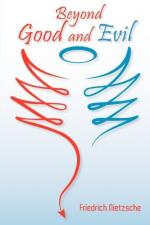
|
| Name: _________________________ | Period: ___________________ |
This test consists of 15 multiple choice questions and 5 short answer questions.
Multiple Choice Questions
1. What type of formula must one make in order to categorize human religion?
(a) Subjective.
(b) Unemotional.
(c) Pious.
(d) Formulaic.
2. The author states the belief that everything comes from which source?
(a) Higher being.
(b) Internal will.
(c) Outer space.
(d) Self.
3. Nietzsche says that it is not necessary to get rid of the soul, however one must allow for its:
(a) Revisions.
(b) Rebirth.
(c) Separation.
(d) Rebellion.
4. Nietzsche considers psychologists to have a large amount of which trait?
(a) Rudeness.
(b) Cautioness.
(c) Curiosity.
(d) Analytical.
5. Which of the following is not tied to religious neurosis:
(a) Tithing.
(b) Dietary restriction.
(c) Fasting.
(d) Sexual abstinence.
6. How does one often view another who has many similar qualities?
(a) Discounts him.
(b) Celebrates him.
(c) Despises him.
(d) Ignores him.
7. What group of people tends to be the least communicative?
(a) Logicians.
(b) Poets.
(c) Academicians.
(d) Free spirits.
8. Some people still believe in immediate certainties and ______.
(a) Immediate results.
(b) Distant uncertainties.
(c) Absolute knowledge.
(d) Promise of the future.
9. Self-contradiction also involves which of the following emotions?
(a) Anger.
(b) Pride.
(c) Hypocrisy.
(d) Envy.
10. The author believes that the philosopher strives to rise above what common thing?
(a) Education.
(b) Basic instinct.
(c) A simple life.
(d) Moral fulfillment.
11. One of the topics addressed in this section is Nietzsche's opinion on conscious versus:
(a) Sleep.
(b) Subconscious.
(c) Instinct.
(d) Death.
12. Nietzsche believes that we are, at our base selves, commanding and obeying __________.
(a) Creatures.
(b) Guinea pigs.
(c) Minions.
(d) Sheep.
13. Schelling referred to intellectual intuition as being a "faculty of the _________."
(a) Suprasensible.
(b) Active mind.
(c) Imbecile.
(d) Incomprehensible.
14. Nietzsche believes that things occur in accordance with the strength of what object?
(a) Conviction.
(b) Freedom.
(c) Will.
(d) Ability.
15. Who will serve as the only judge to the tests we put ourselves through?
(a) Peers.
(b) Jury.
(c) God.
(d) Ourselves.
Short Answer Questions
1. Many people believe that everything is created through the existence of:
2. What is no longer compatible to faith?
3. Nietzsche believes that this created state is born out of:
4. Every person, regardless of status or vocation, strives to seek which of the following:
5. What country is the philosopher's homeland?
|
This section contains 329 words (approx. 2 pages at 300 words per page) |

|




